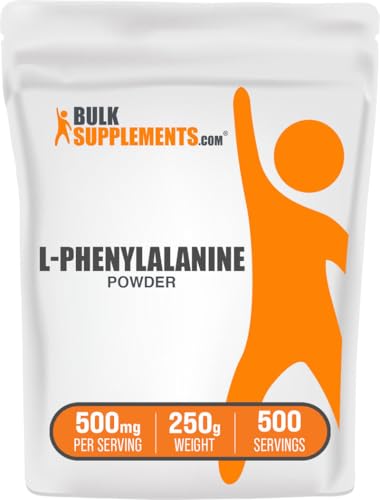Collagen Protein for Muscles: Does It Really Work?
Quick Summary: This study looked at whether taking collagen protein after exercise helps build muscle. The results showed that whey protein (a common type of protein powder) helped build muscle, but collagen protein did not.
What The Research Found
The study found that after exercise:
- Whey protein helped build the main muscle fibers (myofibrils).
- Collagen protein did not help build muscle fibers.
- Neither whey nor collagen protein significantly increased the building of connective tissues (like tendons and ligaments) in the muscles.
Study Details
- Who was studied: 45 young, healthy men and women who regularly exercised.
- How long: The study looked at the effects over a 5-hour period after exercise.
- What they took: Participants were given either:
- 30 grams of whey protein
- 30 grams of collagen protein
- A placebo (a drink with no protein)
What This Means For You
- Whey protein is still a good choice if you're looking to build muscle after a workout.
- Collagen protein might not be the best choice if your main goal is to build muscle or repair muscle fibers after exercise.
- If you're interested in supporting your connective tissues (like tendons and ligaments), this study doesn't show that collagen protein helps with that, at least in the short term.
Study Limitations
- Short Time Frame: The study only looked at the effects for 5 hours. Longer-term studies might show different results.
- Specific Group: The study only included young, active people. The results might be different for older adults or people who don't exercise.
- Focus on Muscle: The study focused on muscle tissue, not specifically on collagen in tendons and ligaments.
- Potential Trends: There was a slight trend toward collagen helping connective tissue, but more research is needed.
Technical Analysis Details
Key Findings
The study found that whey protein ingestion after resistance exercise increased myofibrillar protein synthesis rates compared to placebo (0.041%·h⁻¹ vs. 0.032%·h⁻¹, P < 0.05), while collagen protein did not (0.036%·h⁻¹ vs. PLA). Neither whey nor collagen significantly increased muscle connective protein synthesis rates during 5-hour postexercise recovery (WHEY: 0.072%·h⁻¹; COLL: 0.068%·h⁻¹; PLA: 0.058%·h⁻¹; P = 0.09). Collagen elevated plasma glycine and proline more than whey, whereas whey caused greater spikes in leucine and essential amino acids.
Study Design
This was a randomized, double-blind, parallel-group observational study involving 45 young (25 ± 4 years) recreational athletes (30 males, 15 females; BMI: 24.1 ± 2.0 kg·m⁻²). Participants underwent resistance exercise followed by ingestion of whey, collagen, or placebo. Protein synthesis rates were measured via primed continuous intravenous infusions of l-[ring-¹³C₆]-phenylalanine and l-[3,5-²H₂]-tyrosine tracers. Blood and muscle biopsies were collected over 5 hours to assess myofibrillar and connective tissue protein synthesis.
Dosage & Administration
Subjects consumed 30 g of whey protein, collagen protein, or a noncaloric placebo immediately postexercise. The protein supplements were dissolved in water and ingested as a single bolus dose. Tracer infusions began before protein intake and continued throughout the 5-hour recovery period.
Results & Efficacy
- Myofibrillar Protein Synthesis: Whey significantly outperformed placebo (Δ +0.009%·h⁻¹, P < 0.05), while collagen showed no benefit (Δ +0.004%·h⁻¹ vs. PLA).
- Muscle Connective Protein Synthesis: No differences were observed between groups (WHEY: Δ +0.014%·h⁻¹; COLL: Δ +0.010%·h⁻¹; PLA: baseline).
- Amino Acid Responses: Whey caused greater increases in plasma leucine and essential amino acids (P < 0.05), while collagen elevated glycine and proline concentrations more effectively (P < 0.05).
Limitations
- Short Duration: The 5-hour observation window may not capture longer-term effects on connective tissue synthesis.
- Homogeneous Sample: Results apply only to young, recreationally active individuals; applicability to older adults, elite athletes, or sedentary populations is unclear.
- Indirect Measurements: Connective protein synthesis was inferred from tracer data without direct collagen-specific markers (e.g., hydroxyproline).
- Marginal P-Value: The P = 0.09 for connective tissue synthesis suggests potential trends warranting further investigation with larger cohorts.
Clinical Relevance
For recreational athletes, whey protein remains superior for stimulating myofibrillar repair post-exercise, while collagen offers no additional benefit for muscle connective tissue synthesis in the acute recovery phase. Supplement users seeking connective tissue support (e.g., tendons, ligaments) may need alternative strategies, as collagen’s glycine/proline-rich profile did not translate to measurable increases in muscle connective protein synthesis here. The findings challenge claims that collagen specifically enhances connective tissue repair in muscle after resistance training, at least in the short term.
Analysis based on: PubMed ID 37202878
Original Study Reference
Collagen Protein Ingestion during Recovery from Exercise Does Not Increase Muscle Connective Protein Synthesis Rates.
Source: PubMed
Published: 2023
📄 Read Full Study (PMID: 37202878)




